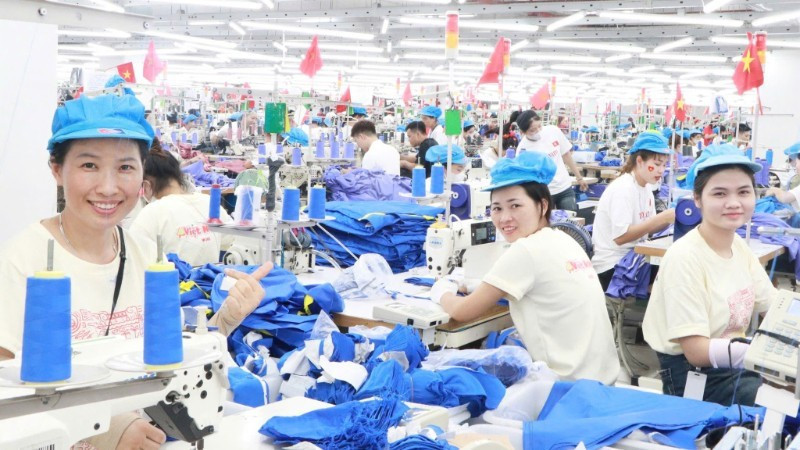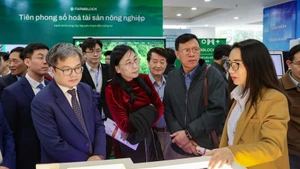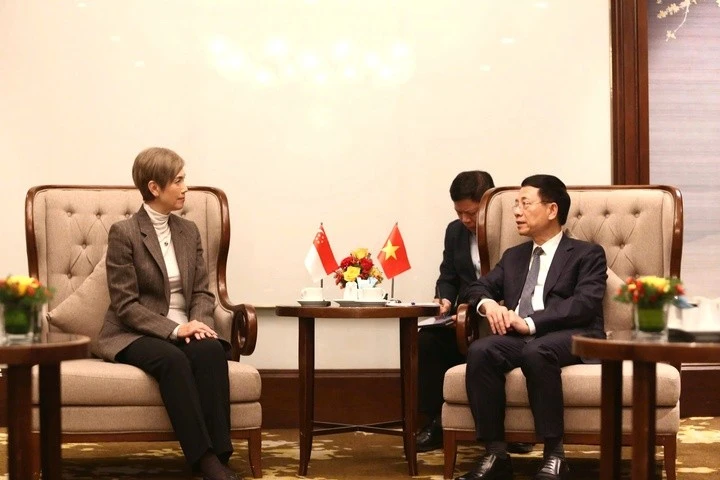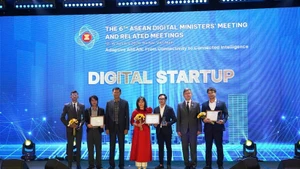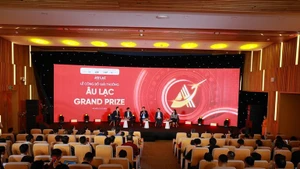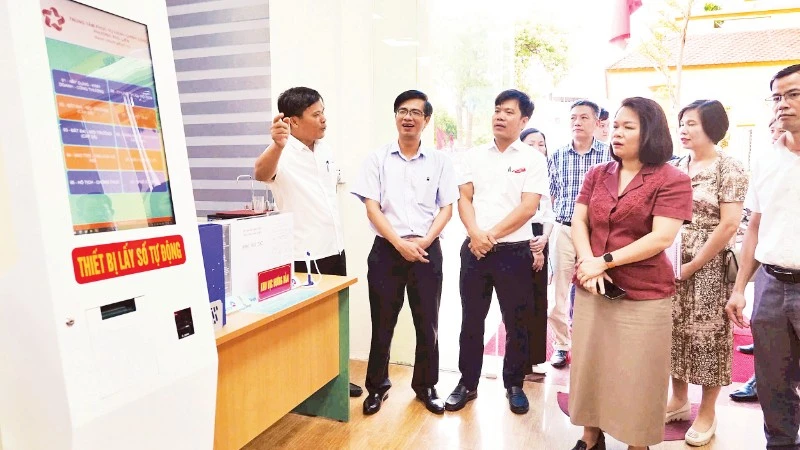These results, together with changes in awareness and actions among residents and businesses in the capital, are contributing to ensuring energy security and reducing greenhouse gas emissions.
Recognising that using energy economically and efficiently is a key solution for sustainable development, organisations, individuals and energy-using establishments across Ha Noi have taken practical actions.
Implementing multiple solutions
Many enterprises have widely adopted high-efficiency equipment, advanced technologies and energy-saving solutions, gradually replacing low-efficiency equipment and moving towards eliminating outdated technologies. Alongside this, they have applied advanced management and operational processes in production, especially in high-energy-consuming facilities.
For example, at the production workshop of Star Fashion Company Limited (Phu Nghia Industrial Park), the company has installed a rooftop solar power system, saving 4.14 billion VND per year and reducing CO₂ emissions by 1,083 tonnes annually. In addition, the company has installed frequency inverters for large-capacity air compressors, air dryers and central air-conditioning systems, helping reduce overall energy consumption.
Nguyen Dinh Thang, Deputy Director of the Ha Noi Department of Industry and Trade, said that the department had cooperated with relevant units to provide technical support for energy audits and the development of energy management systems for facilities. This has helped enterprises apply energy-saving solutions, improve energy efficiency and reduce average energy consumption across industrial sectors compared with previous periods.
At the household level, communication campaigns, awareness-raising and instructions on economical and efficient electricity use have been regularly conducted by agencies, units and mass organisations. Nguyen Van Nga, a resident of Phuc Tan Street, Hong Ha Ward, shared: “Through awareness campaigns, I have learned to adjust the settings of my air conditioner and refrigerator to save energy while keeping them functional. I also frequently unplug devices and switch off equipment when not in use, which helps save electricity and ensures safety.”
Energy saving and reduction of power losses
According to the Ha Noi Department of Industry and Trade, aiming to implement the Programme on Economical and Efficient Use of Energy for the 2021–2025 period, Ha Noi has achieved and exceeded its assigned targets.
Of this, total energy savings reached 705.7 kTOE, equivalent to 8.26% of projected demand (while the target was only 5.0%–7.0%). The city’s overall power loss rate stood at 3.4% (compared with the target of 4.0%).
All key transport enterprises have implemented programmes to disseminate driving skills and technical solutions for the operation and use of motor vehicles in an energy-efficient manner.
In addition, 100% of enterprises in industrial parks and clusters and 80% of rural industrial facilities and craft villages have accessed and applied energy-saving and efficient-use solutions. All key energy-consuming facilities have implemented energy management systems as required.
Ha Noi has recognised 330 facilities and buildings across the city as meeting the “green energy” criteria; 12 establishments have received the national award for energy-efficient and effective use; and 5,000 technical staff and energy managers have been trained and guided.
In addition, 100% of schools in the city have carried out communication and teaching activities on energy-saving and efficient use (compared with the target of 60%).
However, the implementation of the National Programme on Economical and Efficient Use of Energy in Ha Noi still faces a number of limitations. According to enterprises and energy-using establishments, staff in charge of energy management at units often change.
Many establishments continue to encounter difficulties in calculating energy-efficiency indicators. Access to advanced and modern energy-saving technologies and solutions for fuel and materials remains limited; initial investment costs are high, making it difficult for units to select suitable options for application.
According to the Ha Noi Department of Industry and Trade, to address this situation, the department continues coordinating with relevant units to organise training courses to improve the capacity for economical and efficient energy use at energy-consuming facilities in industrial production, construction works and households.
At the same time, technical support will be maintained to help businesses promptly implement solutions suited to their specific conditions and capabilities. Efforts will focus on technical support for energy audits, the development of energy-management systems, workforce training, and the introduction of special mechanisms and policies encouraging businesses and residents to use new energy, renewable energy and clean energy.
